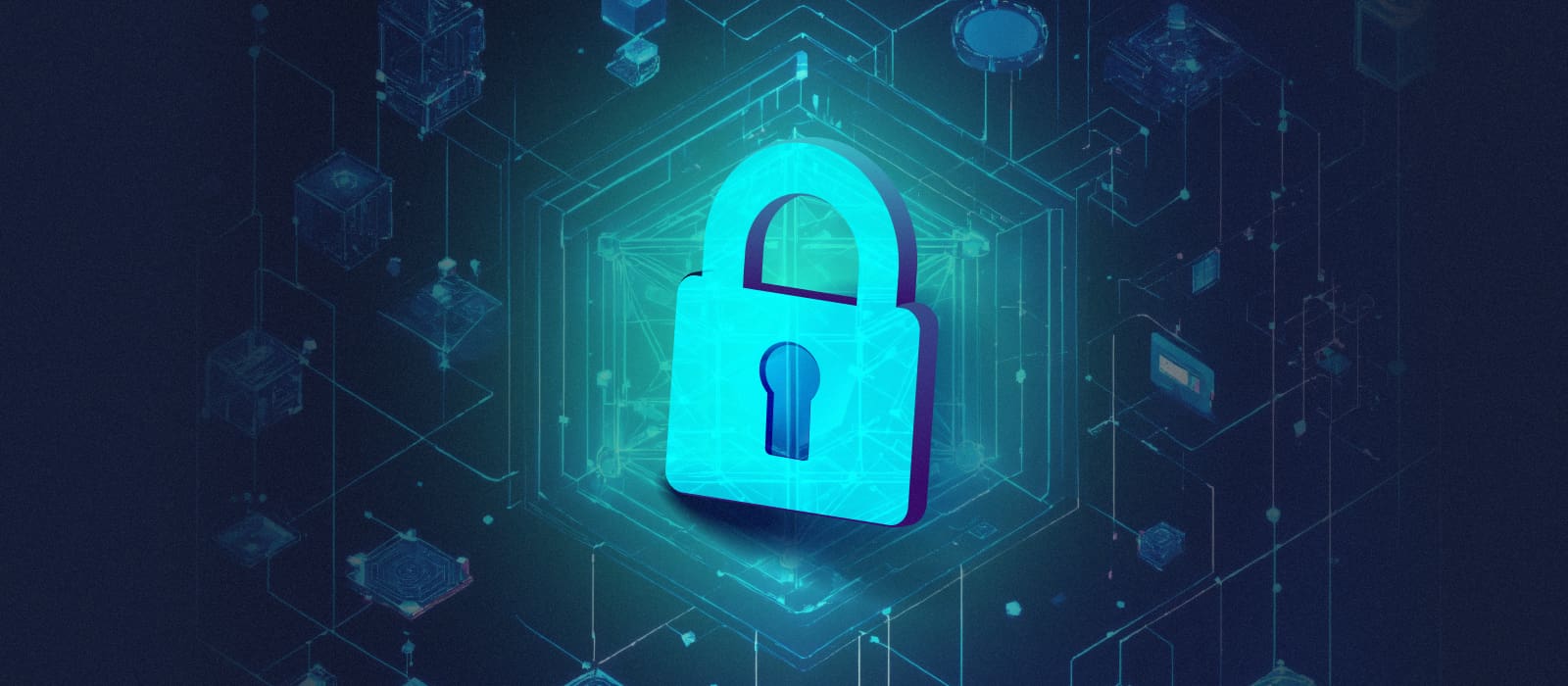Much like the epic power struggles and unexpected alliances in Game of Thrones, the cybersecurity world is a realm of constant change and surprise. Blockchain technology acts as a digital Valyrian steel capable of combating the ever-evolving tactics of modern scammers.
Cybersecurity Ventures forecasts that in 2023, cybercrime expenses will reach a crazy $8 trillion, escalating to $10.5 trillion by 2025.
If we compare cybercrime to a global industry, its value would be higher than the total revenues of major tech companies like Apple, Amazon, and Microsoft.
This not only illustrates its colossal economic impact but also serves as a wake-up call for businesses to constantly innovate and fortify their cybersecurity defenses.
In this article, we’ll explore the role of blockchain in cybersecurity. We’ll explore its benefits and the challenges, and talk about the most effective ways to use it for cybersecurity protection.
Here’s a recap of the most common cybersecurity threats. Check it out
What are the current cybersecurity market challenges?
As technology advances, so do the techniques used by cybercriminals. Each year cyberattacks evolve and become more sophisticated in their nature. This includes a rise in ransomware attacks, phishing schemes, malware, insider threats, and social engineering attacks. This is why businesses are increasingly prioritizing the development of data security software and the implementation of cybersecurity solutions.
Some of the key vulnerabilities that businesses should pay attention to are:
- Server security misconfigurations
- Broken access control
- Sensitive data exposure
- Insufficient logging and monitoring
- Cross-site scripting
- Outdated components and software
Additionally, new challenges arise from the increased adoption of new technologies, including generative AI and 5G networks. These advancements, while beneficial, introduce new vulnerabilities.
Generative AI, for instance, can be used to create sophisticated deepfakes or generate convincing phishing content, posing serious threats to information integrity and personal identity security.
Similarly, the extensive deployment of 5G networks increases the attack surface with more connected devices and data transmission. This necessitates more complex cybersecurity measures and the involvement of cyber security audit experts.
Explore infrastructure security best practices shortlisted by our team
How blockchain assists in strengthening your cybersecurity: key benefits
![]()
Blockchain offers a different approach to cybersecurity due to its inherent nature as a decentralized system. This decentralized architecture significantly reduces vulnerabilities commonly exploited in centralized systems.
Other inherent blockchain cybersecurity benefits include:
- Robust encryption methods. In blockchain, each data block is encrypted and linked to the previous one, forming a tamper-resistant chain. This cryptographic structure ensures data security and integrity, making any tampering attempts evident. This makes blockchain well-suited for securing sensitive data and financial transactions, and for keeping reliable digital records.
- Immutable records. Nobody can modify records on blockchain. If you want to make a change in the record, you will have to make a new transaction, and both the original and the new transactions remain visible on the ledger. This unchangeable record-keeping is a key cybersecurity advantage, deterring fraud and maintaining data integrity.
- Data ownership verification mechanism. Blockchain in cybersecurity offers an efficient mechanism for verifying data ownership and integrity. Each transaction on a blockchain is transparent and immutable, making it easier to track and verify data changes, thereby fortifying cybersecurity measures against a wide array of digital threats.
- Data privacy. While all transactions on blockchain are immutable, a permissioned network limits access to only trusted parties. This method keeps data private by letting only certain transactions be seen. It achieves this with minimal governance, balancing transparency and confidentiality effectively.
What are the main use cases of blockchain in cybersecurity?
![]()
Here are 7 examples of leveraging blockchain in cybersecurity.
1. Identity authentication
Blockchain can be applied to identity authentication, protection, and access management. By storing and verifying personal identity data on a blockchain, a secure and immutable record is created. This decentralized approach ensures that authentication data is less susceptible to hacking, as there is no single point of failure.
So, each time an individual’s identity needs to be verified, the blockchain provides a reliable and tamper-evident source. This blockchain and cybersecurity combination offers several impactful scenarios:
- Sensitive data protection. Blockchain’s immutable ledger ensures that sensitive data remains secured and unaltered.
- Identity theft and fraud prevention. On blockchain, data cannot be easily manipulated or stolen, meaning that there’s less risk of identity theft and fraud.
- Multisignature access controls. Blockchain enables the implementation of multisignature protocols, requiring multiple verifications for access, thus enhancing security and distributing administrative control.
- Private message protection. Blockchain can be used to encrypt and securely transmit private messages, ensuring that communications remain confidential and accessible only to intended recipients.
2. Ownership validation
Another notable application of blockchain in cybersecurity is ownership validation, possible due to the technology’s ability to establish and verify the ownership of digital assets. When proving or questioning ownership, the blockchain record serves as a definitive source of truth ensuring that the actual ownership is transparent and indisputable.
This application is particularly valuable in preventing fraud, resolving disputes, and maintaining the integrity of ownership records in the digital world.
- Digital asset ownership. Using blockchain, you can easily confirm who owns digital items, including cryptocurrencies, NFTs, and digital media.
- Intellectual property. Distributed ledger helps in establishing and proving the ownership of intellectual creations like patents, copyrights, or trademarks.
- Fraud prevention and disputes resolution. Using blockchain for cybersecurity helps prevent ownership disputes and fraud by providing a clear, immutable ownership history. The technology also offers a reliable reference point for resolving ownership conflicts due to its unalterable record.
3. Secure patient health records storage
The healthcare sector is particularly vulnerable to cyberattacks, largely because patient data is highly valued in illegal markets. Compromising patients’ personal details like social security numbers, names, weights, prescriptions, and medical conditions can have severe consequences.
Distributed ledger technology offers a solution by decentralizing patient information. This means that only authorized users can access specific parts of patients’ health records.
By distributing limited data to verified healthcare professionals, blockchain minimizes the risk of cybercriminals obtaining a complete profile of a patient’s health information, thereby enhancing privacy and security in patient data management.
4. Financial assets protection
The circulation of trillions of dollars in combination with often outdated, centralized security protocols makes banks and financial institutions targets for cybercriminals.
By leveraging blockchain, financial transactions can be securely recorded and verified, greatly reducing the risk of fraud and hacking.
Blockchain also allows for real-time tracking of transactions, which makes any unauthorized activity easily detectable.
Additionally, the technology’s strong encryption methods safeguard sensitive financial data against cyber threats, offering a more secure and transparent framework for managing financial operations and customer data.
Here you will find the most impactful use cases of blockchain in finance
5. IoT security
IDC forecasts that there will be 55.7 billion connected IoT devices by 2025. As we become increasingly reliant on IoT devices in our daily lives, it’s important to recognize that many of these devices often lack robust protection measures. This makes them vulnerable to cyberattacks.
Blockchain offers a secure platform for data transfer between devices, safeguarding against unauthorized access. Its decentralized approach allows IoT devices to establish audit trails and tracking systems for product registration and usage.
Additionally, smart contracts on blockchain can automate security protocols, enhancing the overall security infrastructure of IoT networks.
6. Supply chain traceability
Supply chains can also benefit from enterprise blockchain development for cybersecurity. The technology can maintain secure, unalterable records of transactions and freight details throughout the product life cycle, involving multiple parties. This significantly diminishes the risks of product counterfeiting and unauthorized alterations by any individual party.
Blockchain can also validate and authenticate suppliers, ensuring that only trusted partners are part of the supply chain, thus enhancing security and reliability.
Furthermore, blockchain’s automated smart contracts can enforce agreements and streamline processes, reducing the risk of fraud and errors.
Need assistance with smart contract development? Check out our service offering
7. Government cybersecurity
As record keepers for society, governments are prime targets for cyberattacks. Their vast repositories of sensitive data, ranging from citizen records to national security information, require robust cybersecurity measures.
Utilizing a blockchain development company‘s expertise, governments can minimize the risks of data manipulation and unauthorized access. Government agencies can secure their data with strong encryption and establish transparent audit trails.
Additionally, blockchain-based identity systems offer citizens greater control over their personal data while bolstering security.
Cybersecurity trends never cease to evolve. Check out the latest trends in our article
What are the challenges associated with using blockchain for cybersecurity?
![]()
At present, blockchain cybersecurity comes with notable challenges that require attention. These include:
- Regulatory uncertainty. Adhering to constantly evolving cybersecurity regulations and compliance standards can pose difficulties for organizations using blockchain for cybersecurity.
- Interoperability. Different blockchain platforms may struggle to communicate with each other, creating compatibility issues when implementing cross-network solutions.
- Complexity. Blockchain integration into existing systems can be a complex and resource-intensive process, often requiring substantial financial investments and technical expertise.
- Privacy. Balancing the inherent transparency of blockchain with the need for data privacy can be challenging, especially in use cases involving sensitive information.
- Smart contract defects. Smart contracts can have vulnerabilities that can lead to unintended consequences, including financial losses. To mitigate these issues, it’s crucial to engage an experienced smart contract development team and conduct thorough smart contract audits.
- Adoption hurdles. Widespread adoption of blockchain in cybersecurity may face resistance due to inertia, legacy systems, and the need for cultural and organizational shifts.
Planning to integrate blockchain into your business? Talk to our blockchain consultants for expert advice
Closing thoughts
The integration of blockchain in cybersecurity serves as an efficient solution for protecting your digital assets and information.
Blockchain’s inherent characteristics — decentralization, transparency, immutability, and cryptographic security — collectively establish a robust framework for minimizing cyber threats. By leveraging blockchain, organizations can enhance the integrity and confidentiality of their data, fortify their resistance to unauthorized access, and create a more secure digital environment.
Thinking about bringing blockchain into your cybersecurity strategy? With over 16 years of industry experience and a portfolio of 80 blockchain-specific projects, our blockchain developers are equipped to assist you in integrating the technology into your business operations.
Our team knows the ins and outs of blockchain technology and how it can boost your business’s security. So, why wait? Get in touch with us, and let’s explore how blockchain cybersecurity can work for you.




